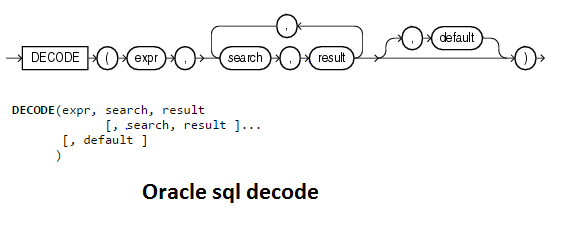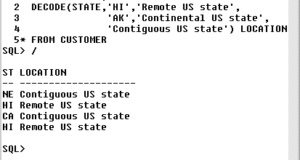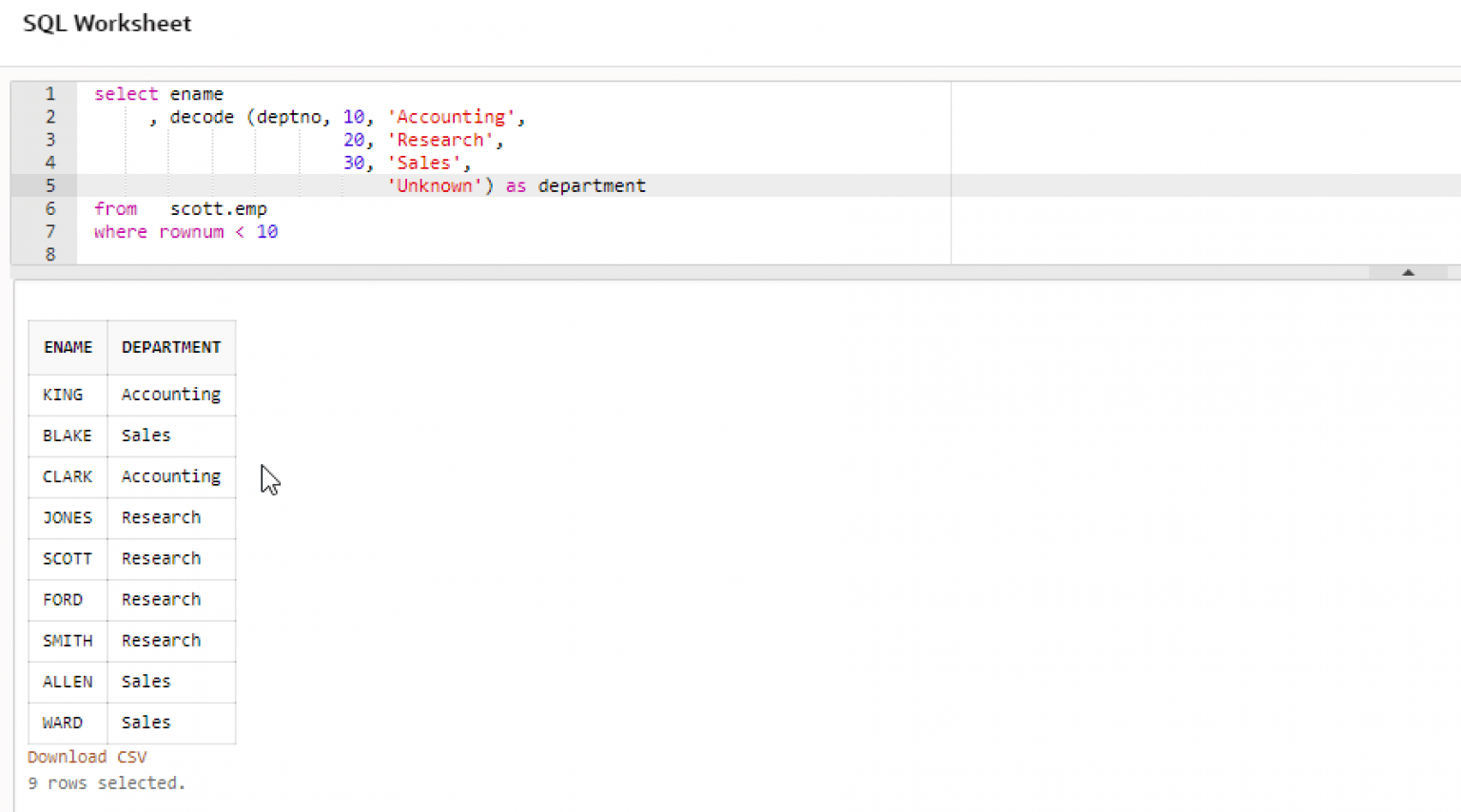
The maximum number of components in the DECODE function, including expr, searches, results, and default, is 255. If expr is null, then Oracle returns the result of the first search that is also null. select from ts ts where ts.contents 0 and bitand (ts.flags, 4503599627370512) 16 Share. In a DECODE function, Oracle considers two nulls to be equivalent. It seems you only want rows where bitand (ts.flags, 4503599627370512) 16. However, in addition to accepting a binary RAW for its input, it also returns a binary RAW for its output. I want to turn binary into something I can more easily port across systems. If the first result has the data type CHAR or if the first result is null, then Oracle converts the return value to the data type VARCHAR2. 5 Oracle has a function for encoding a binary value, specifically a RAW type, into base64: BASE64ENCODE. Oracle automatically converts the return value to the same data type as the first result. Oracle automatically converts expr and each search value to the data type of the first search value before comparing. Consequently, Oracle never evaluates a search if a previous search is equal to expr. The database evaluates each search value only before comparing it to expr, rather than evaluating all search values before comparing any of them with expr. Oracle Database uses short-circuit evaluation. The search, result, and default values can be derived from expressions. If the first search-result pair are numeric, then Oracle compares all search-result expressions and the first expr to determine the argument with the highest numeric precedence, implicitly converts the remaining arguments to that data type, and returns that data type. The string returned is of VARCHAR2 data type and is in the same character set as the first result parameter. expr, search, and result can be any of the data types CHAR, VARCHAR2, NCHAR, or NVARCHAR2. If expr and search are character data, then Oracle compares them using nonpadded comparison semantics. The arguments can be any of the numeric types ( NUMBER, BINARY_FLOAT, or BINARY_DOUBLE) or character types.

If default is omitted, then Oracle returns null.

If no match is found, then Oracle returns default. If expr is equal to a search, then Oracle Database returns the corresponding result.
Oracle db decode code#
SQL Code Formatter uses server side logic to beautify SQL statements and SQL queries.DECODE compares expr to each search value one by one. The following example is slightly different from the one above.
Oracle db decode update#
So people who write SQL queries or those who only need to update some queries can also use an online sql formatter tool for this purpose and help save time on formatting sql queries.įormatting your query on your own may be time-consuming and tedious because you have to keep track of capitalization and spacing, while doing so may not make your design better at all. SQL Query formatter is not easy to do manually and it takes time to maintain these standards for each database schema. It preserves all the details of the original, just in a different format. SQL formatter is a utility that converts the unreadable SQL code into a readable format. SQL formatting is a tedious task, which can be handled by an SQL formatter.

This tool helps uses to beautify large SELECT statements and make it easy to read. SQL Formatter helps to format SQL code data and it helps the developer easy to read the SQL.


 0 kommentar(er)
0 kommentar(er)
